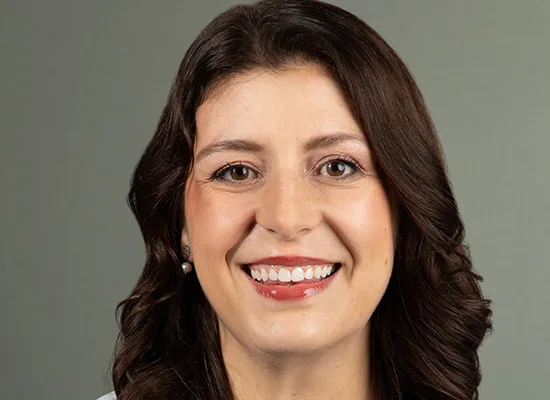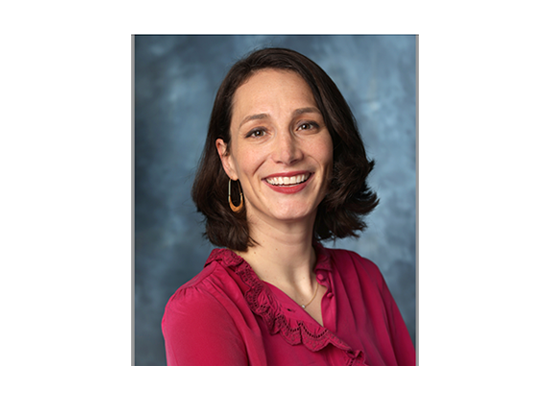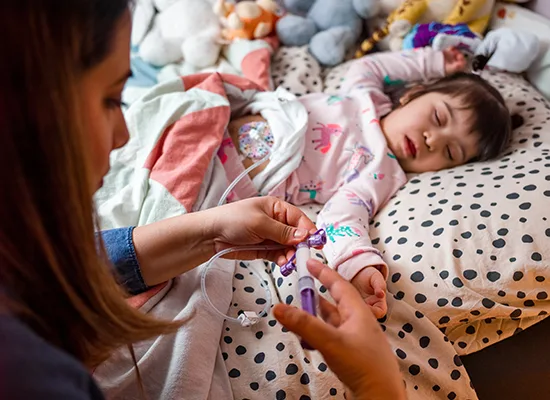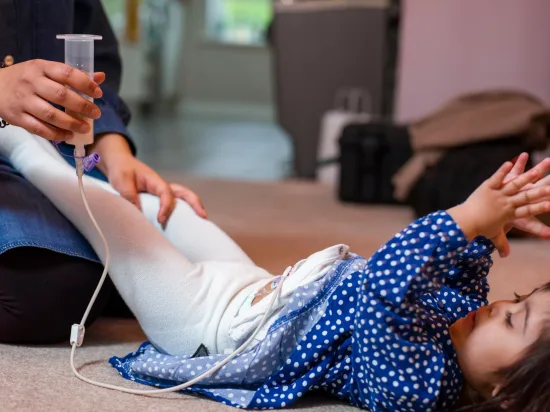Research Study Opportunity on the Transition to Adult Care

The study seeks people with special healthcare needs between the ages of 20 and 30 and their families
Researchers at the University of Chicago are exploring how care changes for people with special healthcare needs as they age out of pediatric care and transition to adult care.
The research study is recruiting people with special healthcare needs between the ages of 20 and 30 and their families to participate in interviews.
People with special healthcare needs have significant chronic conditions that usually require consistent management by more than one type of doctor.
Study participants will have a recorded one-hour Zoom or in-person interview with researchers.
The researchers will ask questions about the transition to adulthood, including what doctors an individual went to and how their health care might have changed.
Participants will receive a $150 gift card for their time.
To enroll, please fill out this form or contact Silvia Arbelaez-Ellis at silviaae@uchicago.edu.
The enrollment form is also available in Spanish.
If you have questions, you can also contact the lead researcher, Betsy Cliff, at bqcliff@uchicago.edu.
Meet Our Medical Advisory Board Member Dr. Sarah Sobotka

“My hope is that what I bring to DSCC… are the data points that help to drive advocacy and improvements in care.”
Dr. Sarah Sobotka first started working with the Division of Specialized Care for Children (DSCC) through her research to improve support for children with mechanical ventilators and their families.
“I have been working with DSCC as a critical partner in my research program since 2017,” she said, noting how DSCC helped recruit eligible families for her research studies.
“I am so fortunate to have had the enthusiastic support from DSCC because our missions are so aligned and from a research standpoint, it allows me to work with a state agency that lacks the bias of a single hospital center or a single institution… it is a more balanced sample, working with the entire state.”
Sobotka and DSCC share the same goal to better understand the needs of children with medical complexity and connect their families with the right services and support to achieve their best quality of life.
In 2020, DSCC’s leadership invited Sobotka to join our Medical Advisory Board as an expert medical provider.
Her research and expertise provide valuable perspectives on how to best allocate resources and improve systems of care for all Illinois children and youth with special healthcare needs.
An early focus on children with medical complexity leaving the hospital
Sobotka is an Associate Professor of Pediatrics, Section of Developmental and Behavioral Pediatrics, and Ambulatory Medical Director of Comer Developmental and Behavioral Pediatric Programs in the Department of Pediatrics at the University of Chicago.
She became interested in children with medical complexity while completing her residency.
“I did my pediatric residency, and then I elected to do a developmental and behavioral pediatric fellowship in order to focus on the diagnosis and support of children with disabilities and their families,” Sobotka said.
She quickly saw how long children with medical complexity and undiagnosed disability spent in the hospital.
“I recognized early on that an impediment to their flourishing and to their families’ functioning was the length of time they were in the hospital,” she said. “So, some of my early work focused on that process of discharge and the many components that have to get together in order for a child with medical complexity, particularly kids with ventilators, to leave the hospital.”
As part of Dr. Sobotka’s training, she took an additional year between her third and fourth year of medical school to complete a Master of Science for Clinical Professionals. This advanced degree gave her training in epidemiology and research.
Sobotka’s research focus has explored what happens after children with complex medical needs leave the hospital, what the home nursing landscape looks like and what individual families’ experiences and needs are.
One of Dr. Sobotka’s first research studies involved interviewing DSCC Care Coordinators, skilled private duty nurses, and parents of children in the Home Care Program who came home with a ventilator.
“I interviewed those parents a couple of times after going home, so I really started to understand the complexity of home care challenges and what that looked like for families,” she said.
This research project identified gaps in therapy services for these children, and Sobotka developed interventions to support their diverse disabilities. She also learned more about how DSCC Care Coordinators support families and what motivates and challenges professionals in this important role.
Improving the healthcare system’s efficiency
Over the last seven years, Sobotka has continued to partner with DSCC on multiple studies. Recent projects include:
- “Disparities in Home Nursing and Hospital Length of Stay for Children with Invasive Mechanical Ventilation: Identifying National Trends and Piloting a Parent-to-Parent Intervention”
- This study includes a parent-to-parent coaching pilot program for families. This pilot program is for families who have a child on a ventilator in the hospital and are awaiting home nursing so their child can be discharged home or have gone home and do not have enough home nursing support.
- This study includes a parent-to-parent coaching pilot program for families. This pilot program is for families who have a child on a ventilator in the hospital and are awaiting home nursing so their child can be discharged home or have gone home and do not have enough home nursing support.
- “Let’s E.A.T! (Eating with Assistive Technology)”
- This study aims to help children with feeding tubes and tracheostomies (trachs) eat by mouth. It is for families who have a child under 3 years old with a feeding tube and trach.
You can read more about these studies on pages 35 and 36 of our FY 2024 Annual Report.
A major theme in Sobotka’s work is improving the healthcare system’s efficiency so that all children, especially those with medical complexity, spend more time in the least restrictive environment at home with their families.
“This ultimately has the greatest potential to improve their developmental trajectory, because although this is a population at high risk for complex disability, I still believe there are opportunities to mitigate the worst disability outcomes with the right interventions at the right times,” Sobotka said.
Sobotka says families’ experiences and feedback direct the course of her research.
As a Medical Advisory Board member, Sobotka enjoys the opportunity to collaborate with other members to advocate for parent caregivers. She also aims to keep families’ needs and priorities at the center of decisions and improvements in the healthcare system.
“My hope is that what I bring to DSCC and also to other investigators, clinicians, and families are the data points that help to drive advocacy and improvements in care,” she said.
Thank you, Dr. Sobotka, for your dedication to improving the lives of children with complex medical needs and their families!
Meet Our Medical Advisory Board Member Dr. Carolyn Foster

“I want to improve the delivery of care to kids and families who have the most significant medical needs.”
Dr. Carolyn Foster is a physician and researcher who has dedicated her career to improving the care and quality of life for children with complex medical needs and their families.
Therefore, serving on the Medical Advisory Board (MAB) for the Division of Specialized Care for Children (DSCC) was a natural fit.
Foster joined the board in 2020. She brings her perspective as a provider as well as 15-plus years of research focused on home health care for children with complex medical needs.
“I was acutely aware from my own patients of the role DSCC played in helping them,” Foster said. “I felt I could bring my experiences as a health services researcher and my understanding of how we evaluate healthcare services and what we know about kids with complex medical needs.”
Foster is currently an attending physician at Ann and Robert H. Lurie Children’s Hospital of Chicago in advanced general pediatrics and primary care. She is also an assistant professor of pediatrics at Northwestern University Feinberg School of Medicine.
Her research centers on developing and evaluating healthcare delivery interventions and healthcare policies for children with medical complexity and disability. The purpose is to maximize health outcomes for these children and improve how well their family members and caregivers navigate their systems of care.
Foster is particularly interested in improving both the access to and the quality of home and community- based health care for children to help them live safe, independent and full lives at home, school and beyond.
“I had a family member who had a health condition that impacted her experience in the day-to-day world, and it motivated me to be a physician. When I was in training, I appreciated this tool of using health services research to improve how we deliver care,” she said.
“I want to improve the delivery of care to kids and families who have the most significant medical needs. There is an ongoing gap in how we serve that population, so I want to put my effort there… This patient population deserves a voice, and I’m hoping to further emphasize that.”
Foster said she appreciates DSCC’s work to shed light on these issues statewide. She is happy to help advise and cheer on these efforts.
“Having a child who has a special healthcare need or disability or complex medical problem is really challenging because the health care, education and community resources are not always talking to one another,” she said.
“DSCC is one of those key programs in the state of Illinois that really provides an important function in making it a little easier for families by helping with care coordination and getting what they need for their child.”
Learn more about Foster’s latest research study below:
Research Study Seeks Families to Help Improve Home Health Care for Children

“SafeCare@Home4Kids” aims to understand and prevent safety issues at home for children with medical complexity
A research study is looking for families to help improve home health care for children with complex medical needs.
The study is called “The SafeCare@Home4Kids Learning Lab: Designing Safer Healthcare at Home for Children.” It wants to learn from parents of children with medical complexity about what it is like to care for your children at home, including giving your children complex medication and using your children’s devices. The study aims to find ways to help prevent safety problems with this complex caregiving at home.
Dr. Carolyn Foster of Ann and Robert H. Lurie Children’s Hospital of Chicago is leading the research team. Foster is also a member of the Division of Specialized Care for Children’s (DSCC) Medical Advisory Board.
By sharing your experiences, you can help “SafeCare@Home4Kids” find ways to better support and help parents while reducing problems and challenges at home.
What does the study involve?
Participation in the study will take about one week. For seven days, you will send photos or text-based messages about your experience with your child’s medication-related activities and devices at home. Please note, if you do not have a device, the study researchers will loan you one.
After the week is over, you will meet with research team members to talk about your messages. You will also participate in a “critical decision methods” interview about how you:
- Identify problems with your child’s medication or device
- Communicate the problem
- How you have problem-solved these issues in the past
The research team will keep your answers confidential. If you complete all study steps, you can receive up to $195 by virtual gift card.
How do I participate?
You can enroll in the “SafeCare@Home4Kids” study if you:
- Speak English or Spanish
- Have a child who is 17 years old or younger with a disabling complex chronic condition who uses an implanted medical device to receive medication at home (such as a gastrostomy tube)
Please email fosterlab@luriechildrens.org or call (312) 227-2510 to enroll or ask questions.
For more details about the “SafeCare@Home4Kids” study and DSCC’s involvement, please visit https://dscc.uic.edu/dscc-partners-in-research-study-to-improve-home-health-care-for-children/.
You can also see the study flyer for more information.
DSCC Partners in Research Study to Improve Home Health Care for Children

“SafeCare@Home4Kids” aims to understand and prevent safety issues at home for children with medical complexity
The Division of Specialized Care for Children (DSCC) is excited to partner on a new research study to help improve home health care for children with complex medical needs.
The research team is led by Dr. Carolyn Foster of Ann and Robert H. Lurie Children’s Hospital of Chicago. Foster is one of our Medical Advisory Board Members.
Foster and her research team have received a $2 million grant award to fund the study, called “The SafeCare@Home4Kids Learning Lab: Designing Safer Healthcare at Home for Children.”
This study will bring together experts and patient families to better understand how family caregivers and home nurses can help identify, communicate and prevent safety issues at home for children with complex medical needs. The study will use this input to create a digital safety toolkit to help support families.
DSCC Executive Director Thomas F. Jerkovitz said DSCC appreciates this opportunity to partner in the study. He said DSCC will share our team’s experiences with families and home nurses who report safety challenges at home.
Dr. Molly Hofmann, our Director of Care Coordination, Systems Development and Education, is one of the participating experts.
“DSCC plays such a pivotal role in supporting care in the home and… is a repository for safety events,” Foster said. “DSCC also plays such a functional role in creating solutions, so it was pretty clear to me I wanted to have DSCC be a partner in the grant.”
Children with medical complexity need substantial amounts of care to live safely at home. In recent years, their families have taken on increasingly more in-depth medical care at home.
“We send patients home with increasingly more complex medical regimes, and families have expressed to us they didn’t have a clear way to get the support they need when experiencing problems at home,” Foster said.
“A lot of our patients have an artificial airway to help them breathe or they have a g-tube in their stomach to help them eat. If that gets clogged or it falls out or the tubing connected to the machine gets broken, then they can’t get the nutrition they need and they end up in the emergency room. And it’s a life-threatening event at home if their airway isn’t working,” Foster continued. “The idea for the study is we want to find out what are the things leading up to when those safety events occur so we can prevent them.”
“SafeCare@Home4Kids” also wants to help improve communication when medical device and equipment malfunctions happen at home.
“Doctors don’t always know, and families might not know that they should or can tell us about it. They might tell the DME (durable medical equipment company) to get the replacement part, but we don’t know about it, so we keep ordering it for other patients,” Foster said. “It’s both an issue for current patients and also an issue for future patients.”
The study aims to create a better system where families can communicate safety problems at home and know who to notify when they occur.
“One of the problems we recognize is families are scared they’re going to get in trouble. We want to make sure they feel supported to let us know when medical problems are happening at home,” Foster said. “The goal is to move past the reporting safety events to preventing them in the first place.”
The study will also host focus groups to hear directly from families about the safety issues that affect them.
“The goal is to hear from real families on what it’s like day-to-day,” Foster said. “Hopefully it’s the beginning of several projects to support how we’re improving care in the home.”
If you are a family member and would like to participate or learn more about the “SafeCAre@Home4Kids” study, you can email Foster at fosterlab@luriechildrens.org.
We are excited to collaborate with Foster and her research partners on this important project. We’ll share more updates and opportunities to get involved as it progresses.
The project kicked off in September and will continue through July 31, 2027.
Individuals with Cerebral Palsy Needed for Dance Research Study

Study will investigate the effects of ballet dance class on stretch reflexes and spasticity.
The Neuroscience of Dance in Health and Disability Laboratory at the University of Illinois at Urbana-Champaign is doing a research study on physical rehabilitation in cerebral palsy.
The study will investigate the effects of a ballet dance class on the regulation of stretch reflexes and spasticity in individuals with cerebral palsy.
Participants must meet the following criteria:
- Be between the ages of 3 and 64
- Have been diagnosed with CP
No previous dance experience is required.
To participate and/or find out additional information, please contact Dr. Lopez-Ortiz at (217) 300-1022 or lopezort@Illinois.edu.


